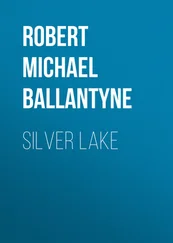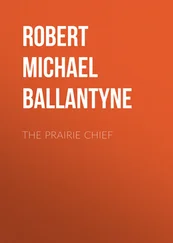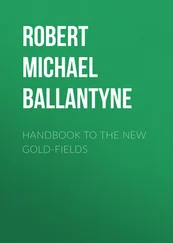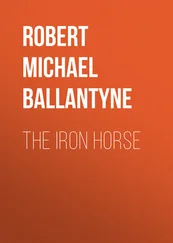Robert Michael Ballantyne - Black Ivory
Здесь есть возможность читать онлайн «Robert Michael Ballantyne - Black Ivory» — ознакомительный отрывок электронной книги совершенно бесплатно, а после прочтения отрывка купить полную версию. В некоторых случаях можно слушать аудио, скачать через торрент в формате fb2 и присутствует краткое содержание. Жанр: foreign_children, literature_19, foreign_antique, foreign_prose, на английском языке. Описание произведения, (предисловие) а так же отзывы посетителей доступны на портале библиотеки ЛибКат.
- Название:Black Ivory
- Автор:
- Жанр:
- Год:неизвестен
- ISBN:нет данных
- Рейтинг книги:5 / 5. Голосов: 1
-
Избранное:Добавить в избранное
- Отзывы:
-
Ваша оценка:
- 100
- 1
- 2
- 3
- 4
- 5
Black Ivory: краткое содержание, описание и аннотация
Предлагаем к чтению аннотацию, описание, краткое содержание или предисловие (зависит от того, что написал сам автор книги «Black Ivory»). Если вы не нашли необходимую информацию о книге — напишите в комментариях, мы постараемся отыскать её.
Black Ivory — читать онлайн ознакомительный отрывок
Ниже представлен текст книги, разбитый по страницам. Система сохранения места последней прочитанной страницы, позволяет с удобством читать онлайн бесплатно книгу «Black Ivory», без необходимости каждый раз заново искать на чём Вы остановились. Поставьте закладку, и сможете в любой момент перейти на страницу, на которой закончили чтение.
Интервал:
Закладка:
After the lapse of ten or fifteen minutes, Yoosoof raised his head—for he had been meditating deeply, if one might judge from his attitude—and glanced in the direction of an opening in the bushes whence issued a silent and singular train of human beings. They were negroes, secured by the necks or wrists—men, women, and children,—and guarded by armed half-caste Portuguese. When a certain number of them, about a hundred or so, had issued from the wood, and crowded the banks of the creek, they were ordered to stand still, and the leader of the band advanced towards his master.
These were some of Yoosoof’s “goods and chattels,” his “cattle,” his “black ivory.”
“You have been long in coming, Moosa,” said the Arab trader, as the man approached.
“I have,” replied Moosa, somewhat gruffly, “but the road was rough and long, and the cattle were ill-conditioned, as you see.”
The two men spoke in the Portuguese tongue, but as the natives and settlers on that coast speak a variety of languages and dialects, we have no alternative, good reader, but to render all into English.
“Make the more haste now,” said Yoosoof; “get them shipped at once, for we sail when the moon goes down. Pick out the weakest among the lot, those most likely to die, and put them by themselves in the small dhow. If we must sacrifice some of our wares to these meddling dogs the English, we may as well give them the refuse.”
Without remark, Moosa turned on his heel and proceeded to obey orders.
Truly, to one unaccustomed to such scenes, it would have appeared that all the negroes on the spot were “most likely to die,” for a more wretched, starved set of human beings could scarcely be imagined. They had just terminated a journey on foot of several hundreds of miles, with insufficient food and under severe hardships. Nearly all of them were lean to a degree,—many so reduced that they resembled nothing but skeletons with a covering of black leather. Some of the children were very young, many of them mere infants, clinging to the backs of the poor mothers, who had carried them over mountain and plain, through swamp and jungle, in blistering sunshine and pelting rain for many weary days. But prolonged suffering had changed the nature of these little ones. They were as silent and almost as intelligently anxious as their seniors. There were no old pieces of merchandise there. Most were youthful or in the prime of life; a few were middle-aged.
Difficult though the task appeared to be, Moosa soon selected about fifty men and women and a few children, who were so fearfully emaciated that their chance of surviving appeared but small. These were cast loose and placed in a sitting posture in the hold of the smallest dhow, as close together as they could be packed.
Their removal from the bank made room for more to issue from the wood, which they did in a continuous stream. Batch after batch was cast loose and stowed away in the manner already described, until the holds of two of the large boats were filled, each being capable of containing about two hundred souls. This was so far satisfactory to Yoosoof, who had expended a good deal of money on the venture—satisfactory, even although he had lost a large proportion of the goods—four-fifths at least if not more, by death and otherwise, on the way down to the coast; but that was a matter of little consequence. The price of black ivory was up in the market just at that time, and the worthy merchant could stand a good deal of loss.
The embarkation was effected with wonderful celerity, and in comparative silence. Only the stern voices of the half-caste Portuguese were heard as they ordered the slaves to move, mingled with the occasional clank of a chain, but no sounds proceeded from the thoroughly subdued and worn-out slaves louder than a sigh or a half-suppressed wail, with now and then a shriek of pain when some of the weaker among them were quickened into activity by the lash.
When all had been embarked, two of the five boats still remained empty, but Yoosoof had a pretty good idea of the particular points along the coast where more “cattle” of a similar kind could be purchased. Therefore, after stationing some of his men, armed with muskets, to guard the boats, he returned with the remainder of them to the hut in which the Englishmen had been left.
There he found Azinté and her guardians. He seemed angry with the latter at first, but after a few minutes’ thought appeared to recover his equanimity, and ordered the men to remove the ropes with which the girl was tethered; then bidding her follow him he left the hut without taking any notice of the Englishmen further than to say he would be back shortly before the time of sailing.
Yoosoof’s motions were usually slow and his mien somewhat dignified, but, when occasion required, he could throw off his Oriental dignity and step out with the activity of a monkey. It was so on this occasion, insomuch that Azinté was obliged occasionally to run in order to keep up with him. Proceeding about two miles in the woods along the shore without halt, he came out at length on the margin of a bay, at the head of which lay a small town. It was a sorry-looking place, composed of wretchedly built houses, most of which were thatched with the leaves of the cocoa-nut palm.
Nevertheless, such as it was, it possessed a mud fort, an army of about thirty soldiers, composed of Portuguese convicts who had been sent there as a punishment for many crimes, a Governor, who was understood to be honourable, having been placed there by his Excellency the Governor-General at Mozambique, who had been himself appointed by His Most Faithful Majesty the King of Portugal.
It was in quest of this Governor that Yoosoof bent his rapid steps. Besides all the advantages above enumerated, the town drove a small trade in ivory, ebony, indigo, orchella weed, gum copal, cocoa-nut oil, and other articles of native produce, and a very large (though secret) trade in human bodies and—we had almost written—souls, but the worthy people who dwelt there could not fetter souls, although they could, and very often did, set them free.
Senhor Francisco Alfonso Toledo Bignoso Letotti, the Governor, was seated at the open window of his parlour, just before Yoosoof made his appearance, conversing lightly with his only daughter, the Senhorina Maraquita, a beautiful brunette of about eighteen summers, who had been brought up and educated in Portugal.
The Governor’s wife had died a year before this time in Madrid, and the Senhorina had gone to live with her father on the east coast of Africa, at which place she had arrived just six weeks previous to the date of the opening of our tale.
Among the various boats and vessels at anchor in the bay, were seen the tapering masts of a British war-steamer. The Senhorina and her sire were engaged in a gossiping criticism of the officers of this vessel when Yoosoof was announced. Audience was immediately granted.
Entering the room, with Azinté close behind him, the Arab stopped abruptly on beholding Maraquita, and bowed gravely.
“Leave us, my child,” said the Governor, in Portuguese; “I have business to transact with this man.”
“And why may not I stay to assist you, father, in this wonderful man-mystery of transacting business?” asked Maraquita, with an arch smile.
“Whenever you men want to get rid of women you frighten them away with business ! If you wish not to explain something to us, you shake your wise heads, and call it business ! Is it not so?—Come, Arab,” she added, turning with a sprightly air to Yoosoof, “you are a trader, I suppose; all Arabs are, I am told. Well, what sort of wares have you got to sell?”
Yoosoof smiled slightly as he stepped aside and pointed to Azinté.
The speaking countenance of the Portuguese girl changed as if by magic. She had seen little and thought little about slavery during the brief period of her residence on the coast, and had scarcely realised the fact that Sambo, with the thick lips—her father’s gardener—or the black cook and house-maids, were slaves. It was the first entrance of a new idea with something like power into her mind when she saw a delicate, mild-looking, and pretty negro girl actually offered for sale.
Читать дальшеИнтервал:
Закладка:
Похожие книги на «Black Ivory»
Представляем Вашему вниманию похожие книги на «Black Ivory» списком для выбора. Мы отобрали схожую по названию и смыслу литературу в надежде предоставить читателям больше вариантов отыскать новые, интересные, ещё непрочитанные произведения.
Обсуждение, отзывы о книге «Black Ivory» и просто собственные мнения читателей. Оставьте ваши комментарии, напишите, что Вы думаете о произведении, его смысле или главных героях. Укажите что конкретно понравилось, а что нет, и почему Вы так считаете.












